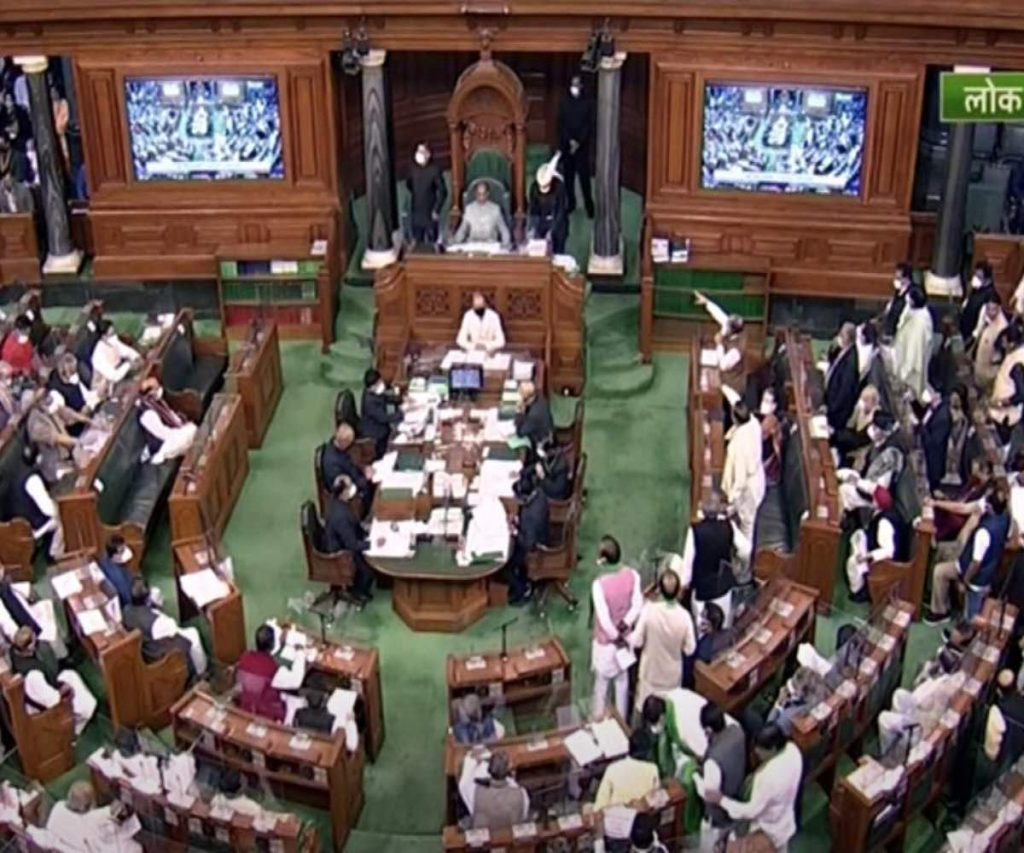New Delhi: A bill was introduced in the Lok Sabha Wednesday with an aim to allow use of birth certificate as single document for admission to an educational institution, issuance of driving licence, preparation of voter list, Aadhaar number, registration of marriage or appointment to a government job.
The Registration of Births and Deaths (Amendment) Bill, 2023 will also help create a national and state-level database of registered births and deaths which eventually would ensure efficient and transparent delivery of public services and social benefits and digital registration.
Introducing the bill on behalf of Union Home Minister Amit Shah, Union Minister of State for Home Nityanand Rai said the Registration of Births and Deaths Act, 1969 (18 of 1969) (the Act) was enacted to provide for the regulation of registration of births and deaths and for matters connected therewith.
He said the Act has not been amended so far since its inception and in order to keep pace with the societal change and technological advancements during the period of its operation and to make it more citizen-friendly, there is a need to amend the Act.
“Based on the consultations held with the state governments, general public, and other stakeholders, it is proposed to amend certain provisions of the Act in form of a Bill, namely the Registration of Births and Deaths (Amendment) Bill, 2023,” Rai said in the statement of objects and reasons.
The bill will facilitate the insertion of provisions for digital registration and electronic delivery of certificate of births and deaths for the benefit of the public at large, to create a national and state-level database of registered births and deaths which would help in updating other databases resulting in efficient and transparent delivery of public services and social benefits.
The legislation will provide for use of the birth certificate as a single document to prove the date and place of birth of a person born on or after the date of commencement of the Registration of Births and Deaths (Amendment) Act, 2023, for admission to an educational institution, issuance of a driving licence, preparation of a voter list, registration of a marriage, appointment to a post in central or state government or a local body or public sector undertaking or in any statutory or autonomous body under the central or state government.
It will provide for issuance of a passport, issuance of an Aadhaar number and any other purpose as may be determined by the central government in order to enhance public convenience and to avoid multiplicity of documents to prove the date and place of birth in the country, according to the statement of objects and reasons.
The bill provides for a change of the ordering authority from the magistrate of the first class or presidency magistrate to district magistrate or sub-divisional magistrate or an executive magistrate authorised by the district magistrate in the case of delayed information of any birth or death to the registrar after one year of its occurrence and submission of self-attested document instead of an affidavit made before a notary public in the case of delayed information of any birth or death to the registrar after 30 days but within one year of its occurrence.
The bill provides for facilitating the registration process of adopted, orphan, abandoned, surrendered, surrogate child and child to a single parent or unwed mother, to make it mandatory for all medical institutions to provide a certificate as to the cause of death to the registrar and a copy of the same to the nearest relative.
It provides for the appointment of special “sub-registrars” in the event of disaster or epidemic for speedy registration of deaths and issue of certificates, to collect Aadhaar numbers of parents and informant, if available, in case of birth registration.
The bill will also ensure addressing the grievances of the general public aggrieved by any action or order of the registrar or district registrar and to enhance the penalties provided in the Act.
Manish Tewari of the Congress opposed the introduction of the bill, claiming the House lacked “legislative competence” to do so.
He said the measure transgresses on the right to privacy and separation of power and suffers from the malady of excessive delegation. The bill was later introduced by a voice vote. The bill will be considered for debate and passage at a later date.
PTI
